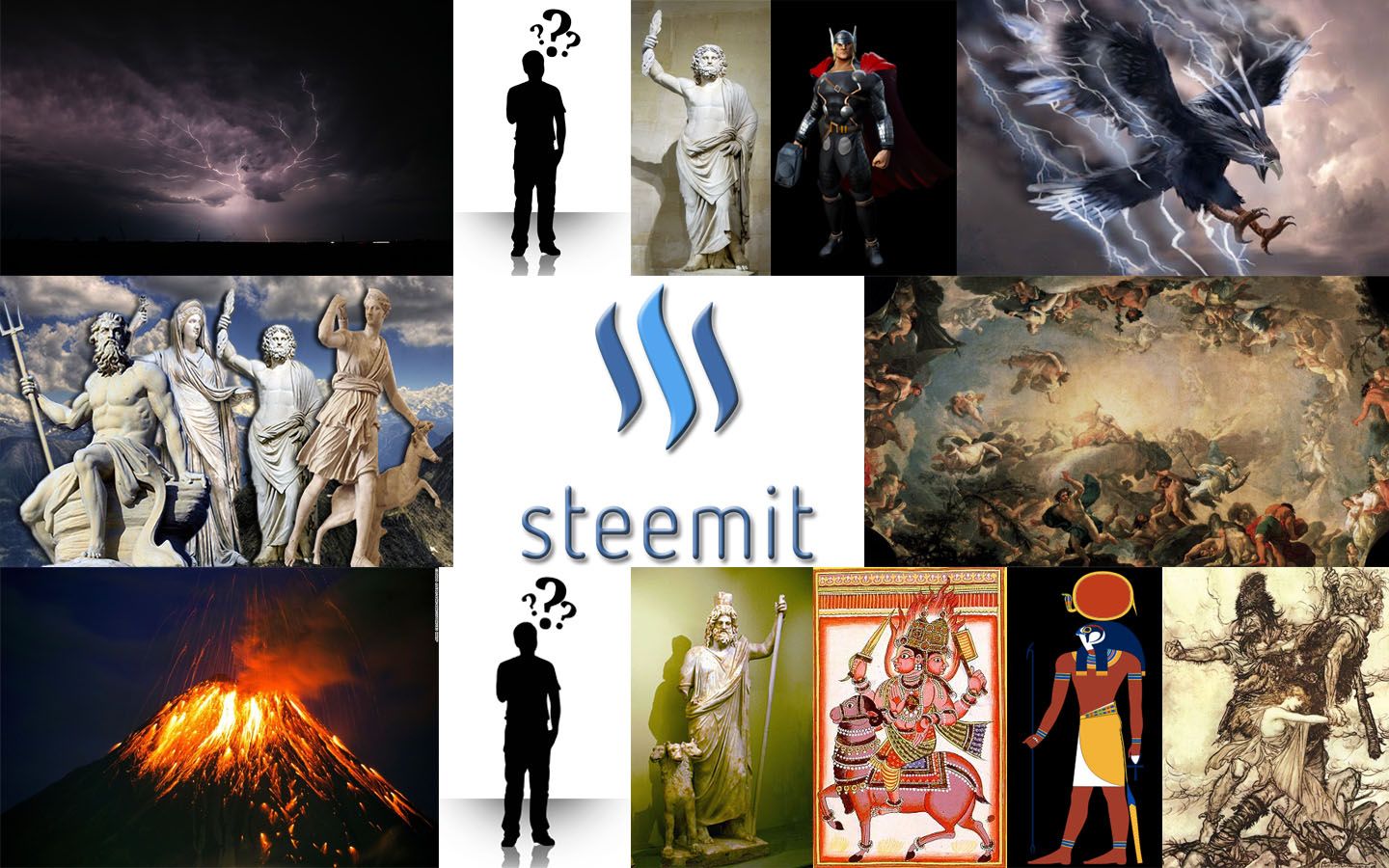When speculation becomes fact... you've likely seen it...

I don't know if you've given much thought to this like I have. You may have witnessed it happening like I have.
Have you ever been in a situation where you saw something strange that none of you could explain (at the time)?
Do you remember the conversations and discussions that occurred after the event and perhaps over the course of time?
Do you remember people saying "Maybe it was X" and likely several ideas flying back and forth?
These are speculations, hypothesis, guesses, etc. They are your imagination seeking to explain something.
Have you ever happened to be around someone that was there for that event some time later where they were recounting the occurrence to someone and suddenly X was not something that "maybe" happened, but instead they are stating it as fact?
I've personally seen this happen many times. I like to observe and use reason.
I do like to speculate too, but I keep it as a speculation as a possibility, rather than treating it as fact.
If I see something I don't understand, how can my speculation suddenly become fact and explain it?
History itself is full of events like these. Many religions had different stories about Gods or spirits to explain lightning, thunder, earthquakes, volcanoes, tornadoes, and to beg for rain.
Were they wrong? In most cases people will say, "Yes, that is mythology" Unless it happens to be something they personally choose to believe. Then it is not mythology, but all the others are. A lot of those are oral tradition. It could be argued by some that it wasn't written down in the past so that is why it is not true. Well the Babylonians wrote about their gods, so did the Hindus, the Egyptians were very active writing about their Gods and the cosmology, the Greeks wrote extensively, and so did other cultures.
How many of these are simply X that survived and was a repeated tale? How many of these began as speculation and became a bunch of interwoven speculations?
How many of these are simply retelling of tales from older religions with names changed and possibly some tweaks here and there?
This is a problem I cannot reconcile. I do not consider speculation to be fact. It is a possibility. It is a hypothesis. If you can test it, and prove it then it becomes something different.
Yet even then there is a danger...
Why would someone tell you not to challenge or question their speculation?
What possible motive could they have?
Why would they tell you this is true, everything else is the bad guy... don't listen to the bad guy?
Why do people that understand logic, reason, observation, science, mathematics, philosophy, etc often suddenly lose all ability to use those things when they are challenged with faith?
Some of them are great at asking questions. They know we should ask questions about everything, even things we think we've proven.
Until it is about faith... suddenly logic, reason, observation, and questioning are a bad thing.
This is not true of only one religion. It is true of most of them that actually survive very long.
It is almost like a mental virus and that is it's survival mechanism. "We don't talk about fight club!"
There are many cases in history where the bulk of the population was not taught to read these bibles, tomes, etc. The priest caste were the people that told them what was in the books.
It is only now that we collect and collate massive knowledge that we sometimes find works that predate others. It can show an evolutionary pattern for how these stories evolved and how what was likely speculations about events interwove to build a newer pattern. We can see how one faith encounters people of another and eventually their faith takes on many of the traits of the new people and the faith of the new people is consumed. Yet the faith that emerges is nothing like the original.
Yet if you jump forward in time and mention that IT DIDN'T ALWAYS SAY THAT, or THAT didn't always exist, it came from here.
The mind shuts down, and the DO NOT QUESTION barriers go up.
Why does this happen with supposedly rational people?
Why is it okay to ask questions and to challenge some things but not others?
This even happens with incredibly intelligent people.
This does not only happen in religion. We see it in politics, and a lot of other things today as well. Yet religion is the most pervasive and historically constant example of this that I can find.
I realize this is the type of post that could lose me some followers. I write what I am inspired to write. Do as you feel is right, and I too am okay with that, we each have our own path to walk.
WARNING:
Beyond this point I speak about specific religions (mostly Judaism). If you do not want to read this then I recommend you stop here. I initially was not going to talk about religion and was just going to post what I wrote above. I felt the need to give some contextual examples that I have become aware of during my scholarly pursuits. I respect your right to believe your faith. Until you force it upon others, or make laws based upon it that involuntarily impact others. I respect peoples right to also have no faith. Yet, I have been challenged with some of the standard rhetoric I've encountered many times in my life as I've spoken with religious scholars, etc. They do not agree with me, and I not them on SOME things, but we treated each other with respect, had great dialog and I consider them friends.
I spent a considerable amount of time chatting with the author Edward Reaugh Smith. I actually encountered him as I was the person he'd contact to fix his computers, even across state lines for many years. He is a prominent attorney and Christian who when teaching Bible School has a crisis of faith due to some inconsistencies in the bible. Rather than stopping believing, he sought to remain a Christian though he did have to reach outside the typical Christian doctrine. His large inspiration was the considerable works of Rudolph Steiner. The books I have that are signed and are by Mr. Smith are "The Births of Jesus Christ", "The Burning Bush", and "The Souls Long Journey". While these things comforted him and are massive scholarly works with tons of footnotes, end notes, references, etc they actually had a bit of the opposite effect for me. Even so I care about Ed and respect him.
Then as a Director of IT at The Hospice of Saint John I often had some amusing and very enjoyable lunchtime discussions with two unlikely priests. They were very fun to speak to. One was a Presbyterian and looked a lot like Benjamin Franklin. The other was a Latino Lutheran from Chile. These two were very close friends. They were/are great people, and they truly care about people. They were also very open minded and fun to speak with. I mention these case mainly to illustrate that I like people of faith if they are reasonable. None of these people fell back on the "that is Satan" statements, they were not afraid to be questioned, or that people asked questions. They were the type of people that could actually convince people to believe them simply because they lead by example rather than outright condemning people and thought.
How many Christians know of the time when Judaism had no Satan/Devil, and had no hell?
Not many. Most of them only know of the writings after the Council of Nicea collected them, chose which ones to keep, and which ones to toss out, and collated the first "Bible". The first council of Nicea was in 325 AD. The second met in 787 AD. So which WORDS did they change each time, what did they keep, and what did they expel. One of these that is pretty well known is the Book of Enoch and it is thought this is why the Dead Sea Scrolls are such a big thing as well for they are works that appear to have been mostly purged everywhere else.
So when reasonable people call it the word of God rather than MAN I have to wonder how they can view censorship, and the need to edit it by council at least twice as the word of God.
Yet, they do. The answer then may be God worked through them. So God worked through them to alter the historical record?
I have problems with this. Similar things occur in all faiths I've looked at. I simply was heavily immersed and raised in Christianity so that is the one I am most familiar with.
Judaism was actually not the first example of Monotheism though that is how it was taught. Actually the Pharaoh Ahkenaton changed Egypt and stated there was one God and that god was Amun (similar to Amen) sometimes also called Aten. The people of Egypt were not too happy. After Ahkenaton died and Tutankhamen became Pharaoh polytheism returned to Egypt. [ 1 | 2 | 3 ] Some even speculate this is where Judaism actually found its start. Are they correct? Possible... yet it is speculation based upon evidence we have, yet the evidence is not definitive so it is speculation, just like ancient alien hypothesis are simply speculation.
Again, how many people know about a time with Judaism had no Hell?
How many people know that Satan/Lucifer/TheDevil did not emerge as a bad guy until after those of Judaism mingled with those of Zoroastrians? [ 1 | 2 | 3 ]
Yet the common statement is something along the lines "God is perfect, and everything else is Satan". Also known as challenging things and asking questions is bad.
This is an interesting documentary from the History Channel, PBS, or somewhere like that:
Then let's consider Christianity and a few denominations. With some dancing around the subject and twisting of things you might not agree but, doesn't the concept of a Holy Trinity suddenly make it no longer Monotheism?
Or how about the Catholic faith and all the emphasis on Saints and other things. This does not resemble monotheism to me. It seems to be very polytheistic. Sure the super beings might be of differing power, yet this was true of all older polytheistic religions as well. Zeus, Odin, and Osiris were more powerful than the lesser gods in their respective pantheons.

Steem On!


The Council of Nicea (325 AD) was to settle two issues. 1) What books would be in the Bible. 2) The divinity of Christ. Prior to Constantine's ephiney Christianity was comprised of many underground sects (churches) spread throughout the Roman Empire. Representatives of these sects comprised the Council. The question of divinity had two camps Arians, and those who believed that Jesus is divine. Arianism centered on the belief that God created everything and everything else (including Jesus) was a creation. The Council decided that Jesus is divine. In the Nicean Creed when it speaks of the holy catholic church it refers to the group of sects all of whom believe in Christianity. The word catholic means universal therefore, in this context, it does not refer to Roman Catholicism, but the body of Christian Churches. When Martin Luther held his council they deleted 9 books from the Vulgate. Luther wanted to delete James, Hebrews and Revelations but was outvoted. The Catholic Church is monotheistic, we do not worship saints or Mary for that matter. Mary is recognized because she is the mother of Jesus. When we pray the Hail Mary, it is only to ask her to intercede on our behalf. The word pray, literally, means to ask. Most of the early saints were martyrs and are recognized for their contributions, nothing more...they are not considered divine.
Some people do pray to the saints. Some people likely do not. One thing I noticed when sitting on a pew, is that no two Christians on that pew believed 100% the same thing.
The Polythesism Aspect that could be inferred from saints (often as graven images) that are held, revered, and prayed to. I have no doubt that some people SEE past this, yet I assure you not everyone does.
In fact, it was this aspect of Catholicism that gave the African slaves in places like Haiti a way to transpose their tribal Gods into the aspect of Catholicism. This is where Vodoun came from. They were able to continue their polytheism (tied to spirits an Loas) by slight tweaks to Catholicism. It also made it easier for them to coexist with the Catholics.
I dispute that any religion that does the Good vs Evil with two sides is Monotheism. That is a dualistic system. They may believe one is superior to the other, but this was like I said true of ancient polytheistic religions as well.
During early Judaism (before mingling with Zoroastrians) Judaism was indeed most definitely monotheistic.
I think it is debateable whether it remained monotheistic after taking on the traits of the DUALISTIC system of Zoroastrianism.
Praying is not worshipping... it's only asking someone close to God for help.
I'll concede that is an accurate statement. Yet this is a good time to ask. What is your definition of worship?
I would have to equate it with rendering COMPLETE obedience to without hesitation. Something I reserve for God alone.
As far as Christian history goes, this guy is really good. I agree with your last comment. I, in fact, believe that it is a good thing to question. That's why I'm Catholic (although I'm kind of a Deist also)
And I truly dislike attacking peoples religion. I truly do.
I posted about Deism the other day because it'd been awhile and I saw people hinting at discovering how they were thinking and what they were describing was Deism, yet it is largely unknown.
So I figured it was time to post about.
@dreemit then asked my opinion on the Afterlife, so I obliged and wrote an article.
I of course had a Muslim, and a Christian each come at me in their own ways. Very similar ways actually.
So that inspired me to dig deeper. I haven't started quoting particularly evil passages of the bible or inconsistencies as that was not my goal.
Ultimately people can believe whatever they want as long as they don't force it upon others. They can lead people to it by their actions then it is voluntary and I have zero problems with that.
Absolutely! One of the biggest problems I have with "Christians" is that they try to force their beliefs on others (as do Muslims). People can believe what they like. Here's my simplified version of my belief. God is the creator, He created heaven & earth and man. Man created religion in his own image and mostly it has little to do with God. Jesus (God in the flesh) created his church, His ministry on earth and turned it over to St Peter (Upon this rock I build my Church and the gates of Hell shall not prevail against it.) The Old Testament is based on a different covenant(s), it is a Judaic covenant. I don't know if you're familiar with the Jefferson Bible... T. Jefferson deleted what he thought unnecessary (its pretty good)
Yep I mentioned the Jefferson Bible in my article on Deism a few days ago. Jefferson was a Deist.
Also as far as the video and the Council of Nicea. It ultimately came down to people making the DECISION and debating. It had nothing to do with actual reality. It had to do with what the council decided was the truth.
This doesn't work for me.